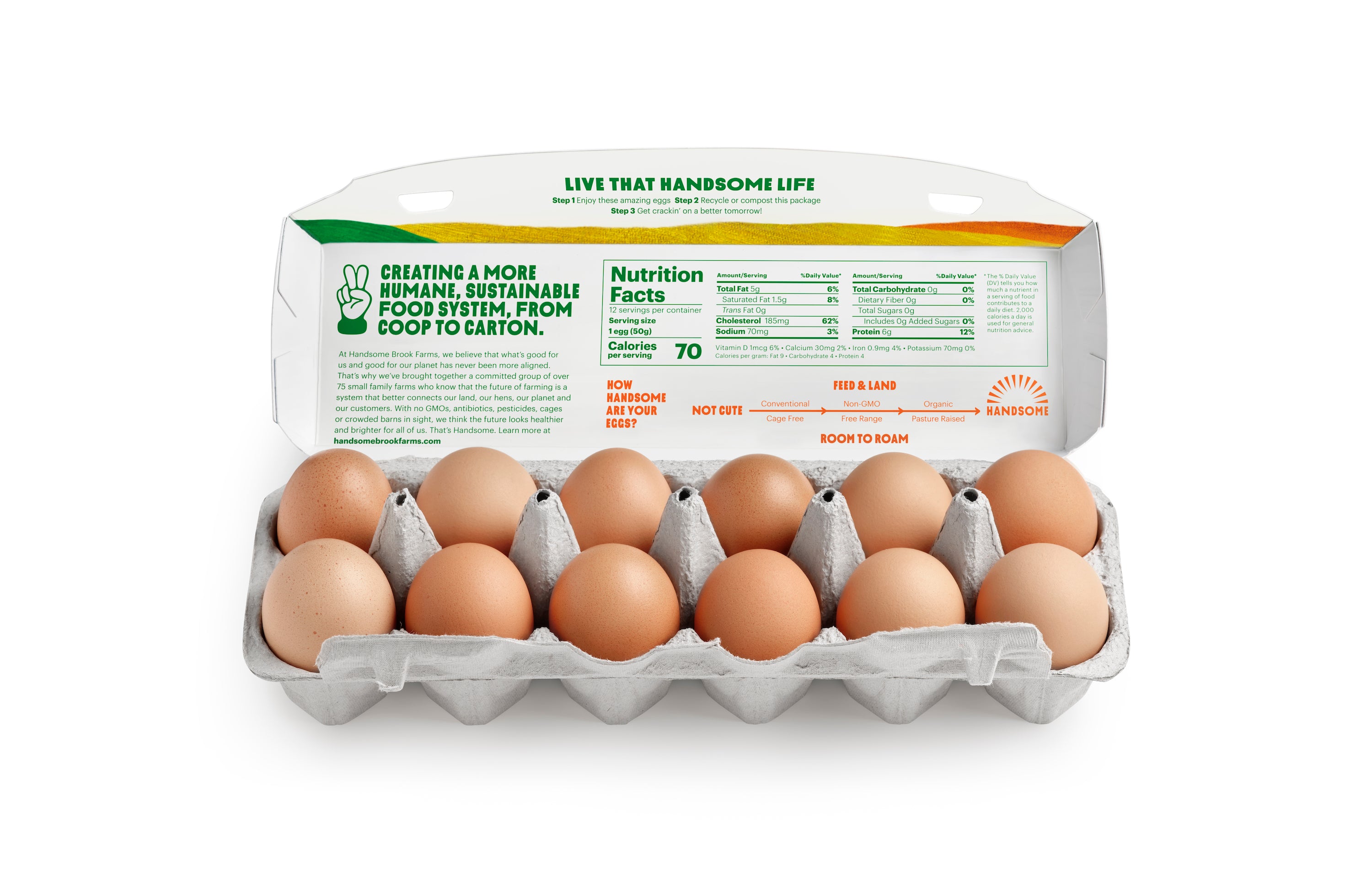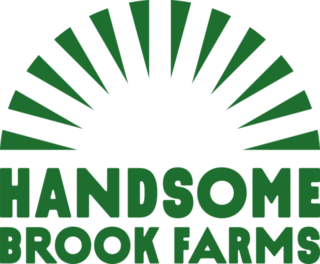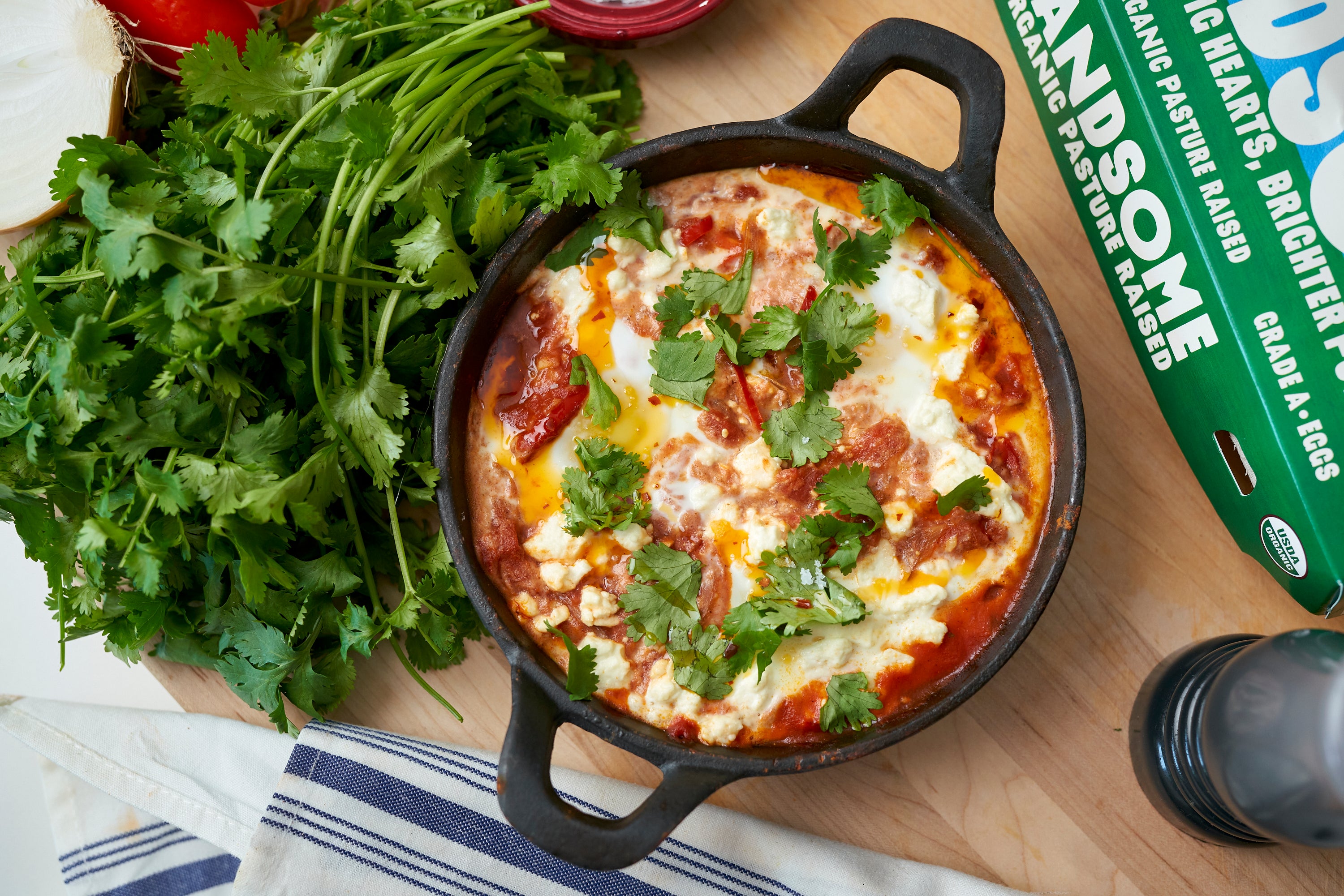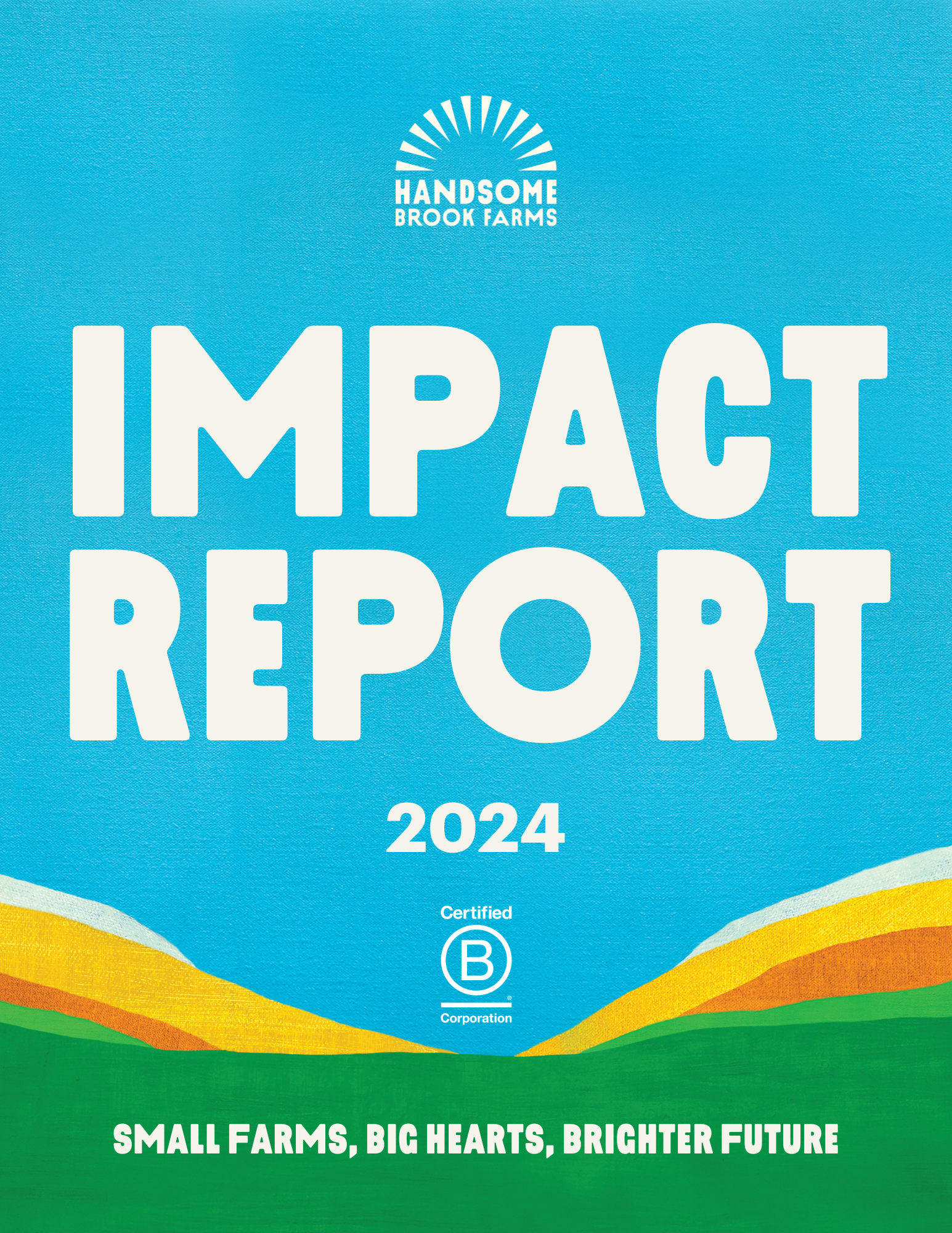Labels are Confusing, So Here's How to Navigate the Egg Aisle

Farm fresh, cage-free, free-range, pasture-raised, organic, Non-GMO— a simple and memorable guide to help decipher the daunting aisle.
If you’ve ever wandered down the egg aisle, frantically glancing from egg carton to egg carton to determine which one is “best” — well….you’re human.
Unfortunately, the confusing terms and visual homogeneity make it difficult for most people to find cartons that reflect their everyday values – like sustainability, freedom from chemicals and antibiotics, and animal welfare.
That’s why we’ve decided to decipher the top label terms to help you make the most of your next aisle eggventure.
“Farm Fresh” and “All Natural”
Before we dive into it, let’s start off by busting some labeling myths that have stumped even the best of us at one time or another. While terms like “farm fresh” and “all natural” might spark images of idyllic pastures and hand-delivered eggs, turns out, these words mean…well, literally nothing. They’re just words. While the terms below are worth learning, these two can be entirely ignored. Onwards!
Cage-Free
While “cage-free” might sound well-meaning, it turns out this claim doesn’t do a whole lot for the hens in question. In fact, this term typically means that each hen has no more than 1 sq foot (!) of personal space and never goes outside. Doesn’t sound so bad? Imagine standing 1 foot away from your roommate … at all times.
It’s really not cute.
Free-Range
Free in the name must be good, right? Well, not that free, really. The problem here is that many producers are allowed to personally interpret how they want to define “free range”. In fact, the U.S. Department of Agriculture (USDA) has not defined the term for eggs (only for livestock chickens). This means that it could mean 21 sq feet of outdoor space, or it could (and more often does) mean 2 sq feet of indoor space (think: the seat of an average chair) — depending on the standards of those certifying the farmer (and how much those standards cost).
Deceiving and definitely not so cute.
Pasture-Raised
This is widely agreed upon to be the top of the line when it comes to animal welfare and sustainability. Not only do pasture-raised hens get access to outdoor space, but lots of it. In fact, “pasture-raised” requires that each hen gets 108.9 sq feet of space to herself — a pretty luxe set up if you ask us. At Handsome Brook Farms, we also routinely rotate the area in which these hens graze, to ensure they have access to varied diets and scenery.
Now this is a Handsome choice.
Non-GMO
This term means that hens are fed non-GMO grains. That said, while the grains may be non-GMO, the pasture and crops can still be treated with chemical pesticides, and hens may receive antibiotics. It’s typically important to combine this term with others to ensure you’re getting the best of the best (and remember, “certified organic” foods are always non-GMO).
So, maybe not cute. Nope, perhaps not at all.
Organic
If you’re taking the time to read this article, there’s a strong chance that you’ve sought out the word “organic” before — but what does it actually mean? Well, lucky for you, we wrote a whole dedicated post addressing this topic. Long story short? The hens, their land and feed are free from chemical pesticides, GMOs and antibiotics — which means you are too.
Handsome. Definitely.
Other (non-label) items to consider
Understanding the terms above can help give you a boost of confidence while booking it through the egg aisle, but why not dig a little bit deeper into a product you and your family are likely buying and consuming weekly. Regionality, packaging & regenerative agriculture are also big factors on the sustainability index, but unfortunately many brands aren’t so forthcoming about their stances on these fronts.
Regionality:
Producing items closer to where they’ll be consumed is an important piece in the sustainability puzzle. It cuts down the byproducts of long-distance transportation required by other less local distribution methods. While this might take a bit of Googling, it’s worth understanding if you’re seeking to support a sustainable producer. At Handsome Brook Farm, we cluster small family farms in specific regions (10 states from NYC to Oklahoma) and pack regionally to service retailers (Southeast, Moark Region, Central Midwest and Northeast). This helps us build an even healthier supply chain with less carbon emissions. (Keep in mind, though — local doesn’t always mean quality, so make sure you’re looking out for high standards across the board. Local is only one piece of this sustainability puzzle.)
Very, very cute. Handsome, some might say.
Packaging:
The type of packaging used by egg producers can signal their commitment to sustainability. Handsome Brook Farms is proud to use a hybrid carton for our primary branded product, which is made up of a combination of molded pulp and paperboard. Our half dozen and one dozen egg cartons can be recycled, fully composted, or used as biodegradable vessels for planting seedlings.
Also very handsome.
Regenerative Agriculture:
Pasture rotation, reseeding, and tree planting all improve the long–term resilience of the land, which makes for a healthier planet. We practice regenerative agriculture and are also working a roadmap to identify areas where we can reduce or completely offset greenhouse gas impact.
Handsome is as handsome does, afterall.
After diving into these definitions, we hope it makes sense why at Handsome Brook Farms, it’s always important for us to be not only pasture-raised, but also organic — combining the best of both worlds to ensure that our hens, farmers and customers are their healthiest, safest and happiest.



